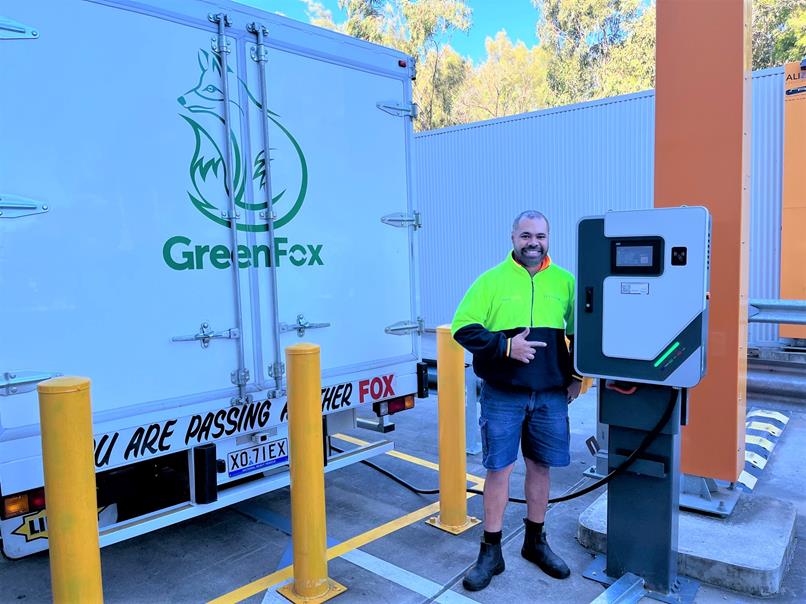Electric Trucks in Australia

Your Quick Overview to Electric Trucks in Australia
Every government in Australia has committed to net zero by 2050 which means the decarbonisation of the transport sector is crucial as the sector currently contributes 19% of Australia’s total carbon emissions. The Electric Vehicle Council (EVC) and the Australian Trucking Association (ATA) have collaborated in order to develop electric freight policy.
With the COVID-19 lockdown having a significant effect on panic buying and online purchases there has been an increase in freight dependency. The Truck Industry Council reported a significant growth in vans and truck purchases with this growth projected to increase into the coming years. It is important that the freight sector is not left behind in Australia’s electrification journey. The opportunities freight electrification can present include ending dependency on volatile diesel cost, reduced total-cost of ownership and improvement of urban efficiency and air quality. However, lack of EV charging infrastructure, limited model availability and an uncertainty surrounding policy are key barriers to the uptake of electric freight. From the identified barriers the EVC and ATA have outlined recommendations for amending Australian design rules for trucks, providing financial incentives and investing in charging infrastructure to reach the 2040 electric truck sales goal of 100%.
Emissions and the Journey to Net Zero
There are currently extremely disproportionate levels of noxious emissions produced from the road freight sector. The current contribution by the transport sector to Australia’s total emissions is 19% with 38% of this from road freight. However, heavy vehicles make up just 4% of the road vehicle fleet.
Economic Opportunity
There is also a strong economic opportunity as cost and saving in the truck industry will have a flow on effect to several other industries in Australia. One of the most significant costs for a business with heavy vehicles in their fleet is diesel. The fluctuating and volatile price of diesel means it is one of the most significant costs for trucks, “It costs about $117 to fuel a diesel truck for 300kms, and just $18 for an electric truck” says Australian Trucking Association Chairman, David Smith.
Sustainability
Businesses are increasingly being pushed to reduce emissions and increase overall sustainability. We are seeing more and more companies announcing sustainability commitments and electric trucks are a way that companies can reach these goals. Trucking company Linfox is now using Volvo electric trucks to transport and deliver the iconic Australian beer, Victoria Bitter, which will not only cut costs for the company but allow them to reduce their net carbon emissions by 30% by 2030.
Barriers and Recommendations
There is a strong case for the update of electric trucks, highlighting the urgent need to accelerate the electric freight transition. Therefore, the EVC and ATA have made federal and state government recommendations to combat barriers and promote uptake.
Regulatory
Design rules such as maximum truck width, steer axle mass and fuel standards are not aligned with international standards and regulations, this delays and restricts the availability of electric trucks on the Australian market as standards used by major suppliers do not meet the necessary Australian standards. To combat this the ATA recommends alignment of standards which as a result will increase efficiency, simplify the import process, and provide more model choices for operators.
Heavy Vehicle & Truck – Charging Infrastructure
The accessibility and affordability of EV charging infrastructure is a major barrier. There are currently around 3,000 EV charging stations to service the 7.688 million square kilometres that makes up Australia. With EV sales increasing its importance, Australia implements a nationwide EV charging network along travel corridors, hubs and distribution centres. Current government incentives and subsidies are allowing for the rapid expansion of the public EV charger network. Along with a public charging network it’s also necessary to have depot-based charging for freight fleets. The EVC and ATC recommendation is for governments to provide grants and support for freight fleet operators with the installation of charging infrastructure in depot settings.
Freight electrification requires collaboration across the sector. The industry needs to move past the planning stage and start building awareness and implement the available technologies to create confidence within the sector and to accelerate freight electrification.
For more information about the considerations and opportunities for heavy vehicle electrification, download our Heavy Vehicle White Paper here.


